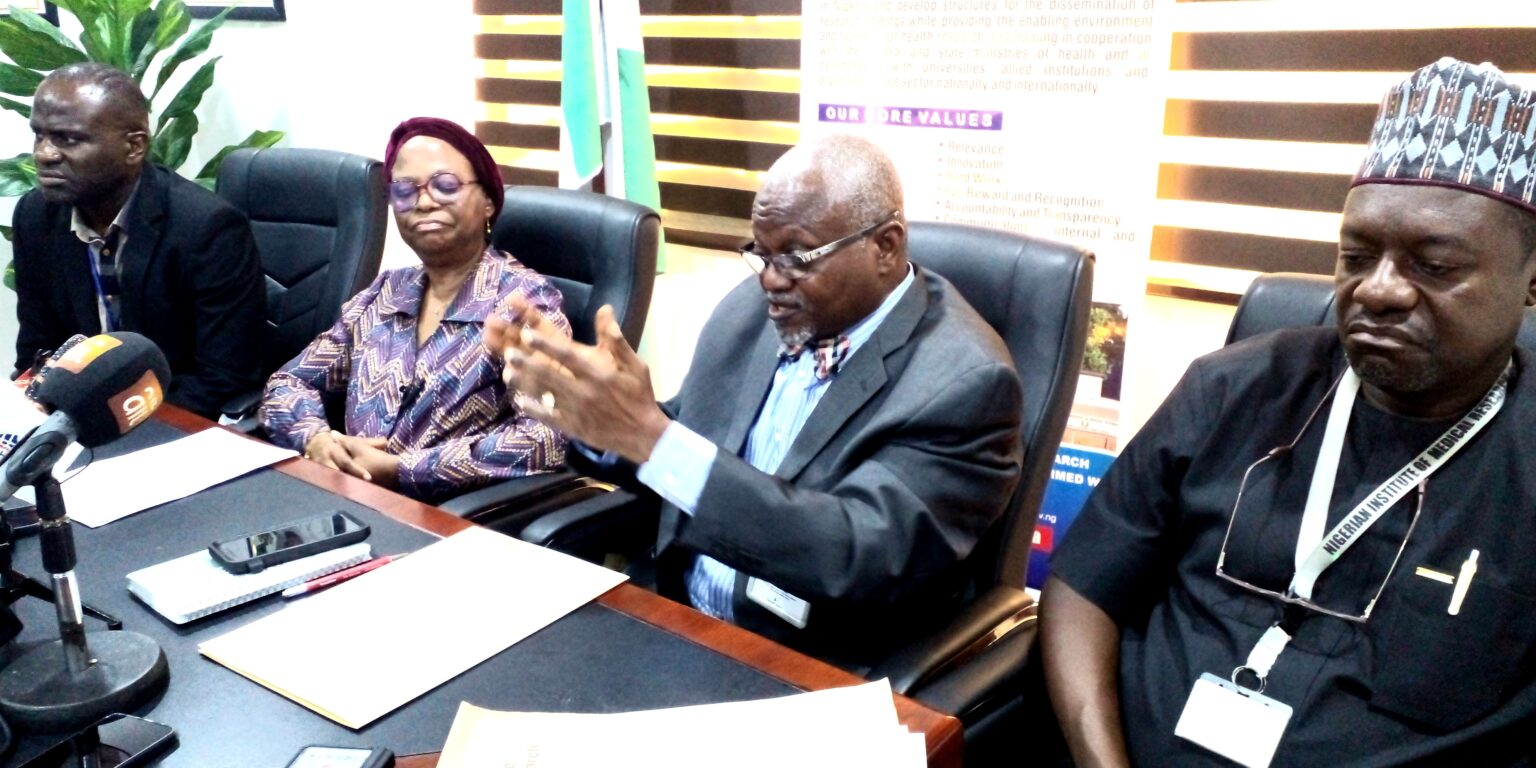The Nigerian Institute of Medical Research (NIMR), Yaba, Lagos, may be thrown into total darkness from Monday, April 28th, as the Eko Electricity Distribution Company (EKEDC), which supplies electricity to the area, has issued a final notice to disconnect the facility from the national grid if it fails to pay N89.4 million in accumulated electricity bills by then.
The Director-General of the institute and professor of forensic pathology, John Obafunwa, made this revelation on Friday at the institute’s monthly media briefing in Lagos, describing the situation as worrisome.
According to him, “The monthly bill from EKEDC to NIMR is extremely outrageous, as the calculation is not even based on the newly introduced Band ‘A’ Tariff circle, but on estimated billings, which the institute cannot cope with.”
Referring to some recent past electricity bills, Obafunwa said, “We were charged about N49 million in August last year, N48 million in September, N44 million in October, it went down to N34 million in November, and rose again to N43 million in December. It continued in that manner, and now we are being charged an average of N45.5 million monthly.
“While we were complaining about these outrageous bills through official letters and sending our representatives to their headquarters in Marina, requesting dialogue to reconcile the issue, they sent us N52 million bills for April alone.
“And now, they’ve sent us a notice threatening to disconnect us by Monday, April 28th, if we fail to pay a sum of about N62.45 million, from a total of N89.4 million, which they claim we owe.
“This development is surprising because we just paid them today (Friday, April 25th), over N34 million out of the outrageous bills they gave us.
“So, where do they expect us to get the whole money from?”
The EKEDC’s disconnection notice, addressed to the DG of NIMR and signed by its Ijora District Business Manager, Mr. Sanyolu Clement, a copy of which was obtained by Sunday Tribune, read in part: “Be informed that your total bill is ₦89,351,449.38, out of which ₦56,447,261 represents your current charge.
“The least we are expecting is payment of the current charge plus the agreed installment amount (N6 million), totaling ₦62,447,261.
“This memo serves as a final disconnection notice. Failure to make the payment on or before April 28, 2025, will result in the withdrawal of our services.”
Obafunwa rhetorically asked how much electricity NIMR is consuming monthly to warrant such huge bills, especially considering they receive less than 10 hours of supply daily.
Furthermore, he disclosed that NIMR’s yearly electricity budget from the federal government, before the current fiscal year, was just ₦20 million. The allocation increased to ₦145 million this year, which is still grossly inadequate given the financial challenges the institute is facing.
He also noted that his administration inherited some unpaid electricity bills from his predecessor, and the institute had already agreed to offset the payments by installments of about N6 million monthly for a period of six months. However, some foreign donors have pulled out of supporting the institute.
Obafunwa emphasized that NIMR is a federal government-owned medical research institute whose activities have direct or indirect impacts on all Nigerians, as it deals with health and medical issues of public concern.
He declared that “Even though we don’t generate income like health facilities or schools, we need a constant supply of electricity because most of our activities in the laboratories, as well as reagents and diagnostic equipment, are temperature-sensitive.”
He argued that “To now shut down power supply to laboratories due to NIMR’s inability to pay electricity bills will not only amount to the wastage of efforts, especially from researchers and foreign donors, but will also cost us more as a country.”
Obafunwa explained that NIMR had repeatedly requested that a pre-paid meter be installed within its premises to enable it to accurately estimate its electricity consumption and regulate usage across its departments and staff quarters. However, EKEDC “refused to buy” into the idea.
“We were even told bluntly by two of their top officials that NIMR would never be given a meter within its premises, that our meter is supposedly situated at their Jibowu Office, which is some meters away from the institute.
“We asked them how they could have installed a meter meant for us in their backyard and be generating figures and bills we know nothing about. But they don’t listen to us, even though we have also filed petitions with the National Electricity Regulatory Commission (NERC) on this concern.”
Obafunwa, however, observed that the current surge in billing to N52 million for the month of April alone could be because NIMR had decided to install its own monitoring meters within its premises.
He called on EKEDC to reconsider its actions and understand that NIMR is not structured to generate revenue. Its operations are for the benefit of over 230 million Nigerians and should be treated as such.
He pointed out that the institute is also making efforts for alternate power supply and would not mind if it could completely be off the national grid.
He restated the institute’s commitment to contributing to health service delivery in Nigeria and, by extension, sub-Saharan Africa.
Efforts by Sunday Tribune to get a comment from EKEDC concerning the matter yielded no positive result, as the General Manager of Corporate Communication and Strategy of the company, Babatunde Lasaki, neither answered calls to his phone nor responded to the text message sent to his number by the time of filing this report on Saturday evening.




